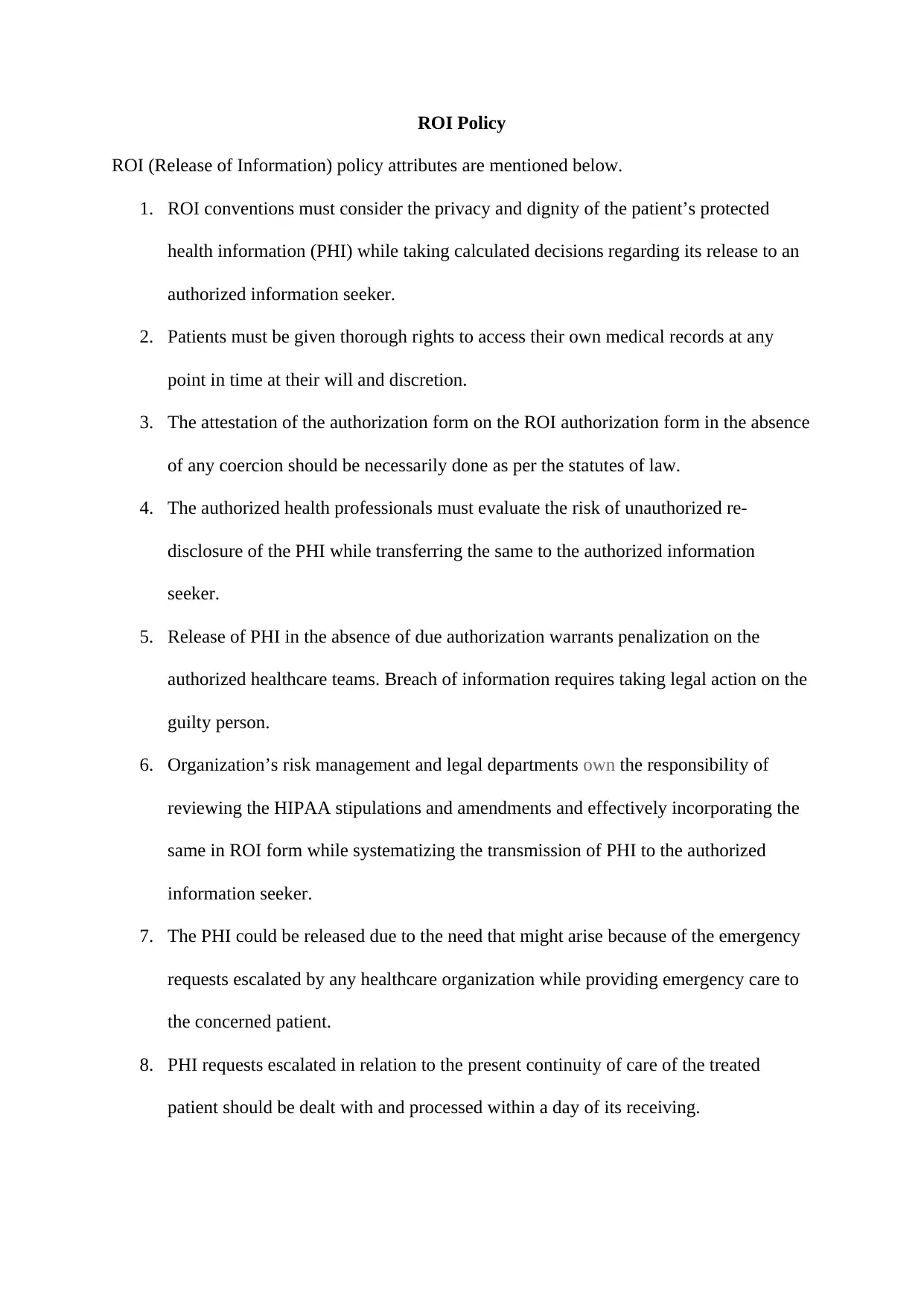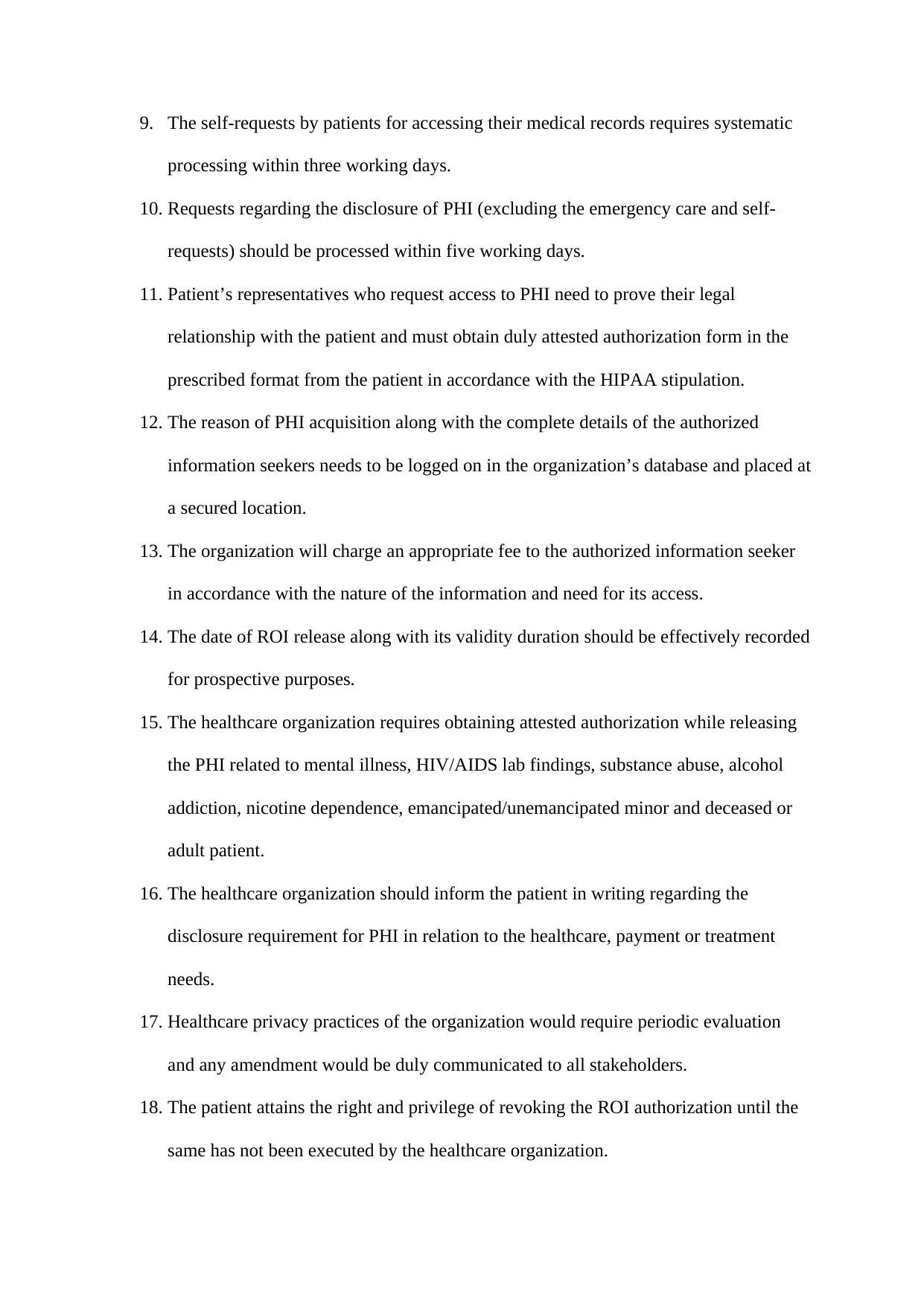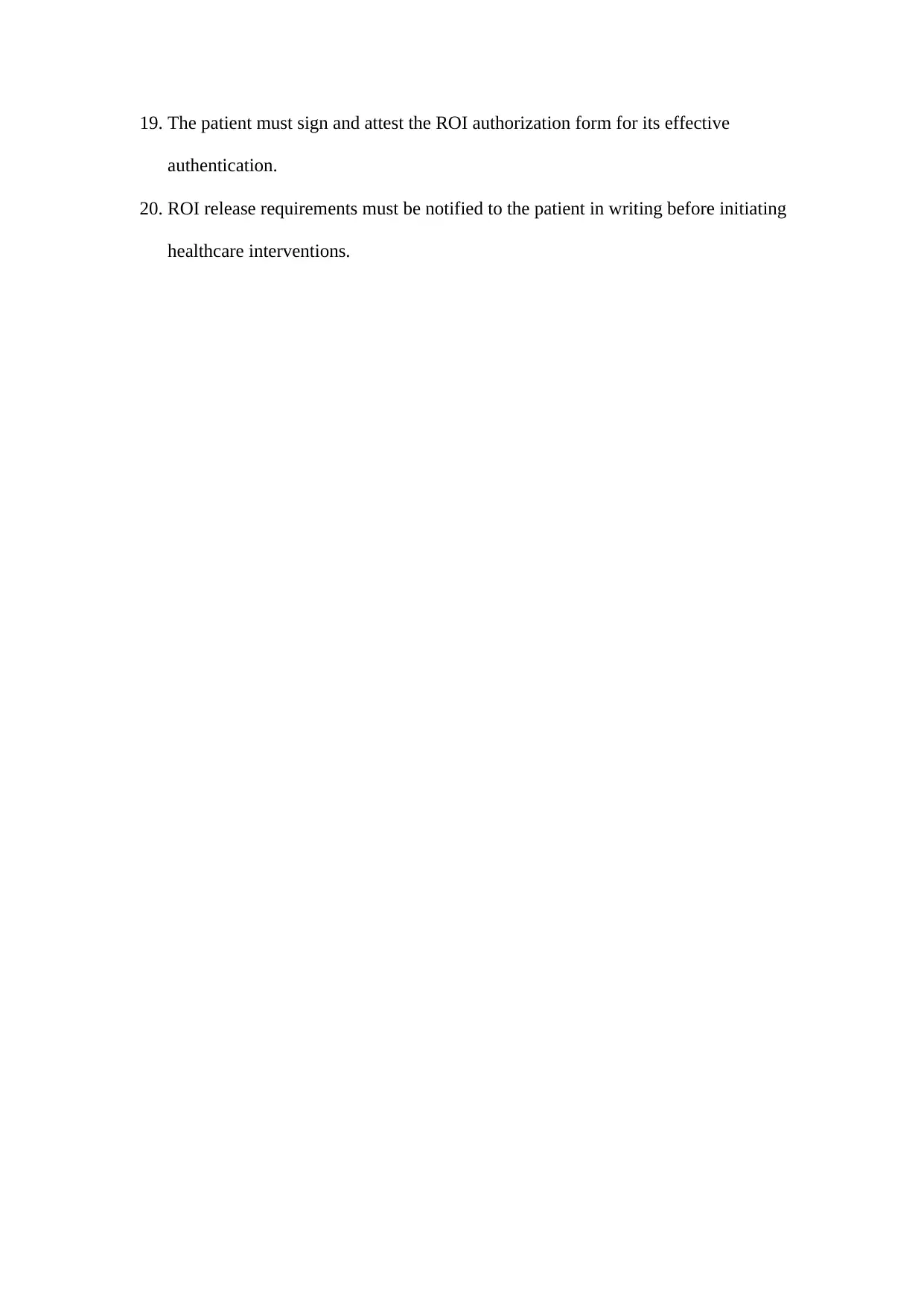Report on Healthcare ROI Policy: Regulations and Procedures
VerifiedAdded on 2020/03/16
|3
|541
|323
Report
AI Summary
This report provides a comprehensive analysis of Release of Information (ROI) policies within the healthcare sector. It highlights key aspects such as patient rights to access their medical records, the necessity of obtaining proper authorization, and the importance of protecting Protected Health Information (PHI). The report outlines specific timeframes for processing information requests, differentiates between various request types (emergency, self-requests, and general requests), and details the requirements for patient representatives. It emphasizes the need for secure data storage, proper fee structures, and the importance of documentation. Furthermore, it covers specific considerations for sensitive information like mental health and substance abuse records, as well as the patient's right to revoke authorization. The report stresses the importance of written notifications to patients and the need for periodic evaluation and updates of healthcare privacy practices. The content is relevant for anyone in healthcare, especially those involved in patient information management and compliance.
1 out of 3










![[object Object]](/_next/static/media/star-bottom.7253800d.svg)